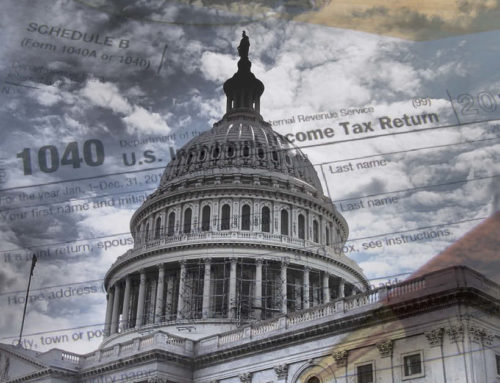Washington is a town marked more frequently by disagreement than consensus, but there is one point on which almost all parties agree: The time has come to overhaul the tax code. The current code, littered with breaks, loopholes, and special provisions added piecemeal over the years, is a maze of complexity. This complexity undermines people’s confidence in the fairness of the system – and in fact makes the system less fair.
This consensus that the tax code is too complex and needs simplification and reform has led to some important steps by House Ways and Means Committee Chairman David Camp, R-Mich., and Senate Finance Committee Chairman Max Baucus, D-Mont. In a strong Wall Street Journal op-ed earlier this month, they stated their commitment to reforming the tax code in a bipartisan way. And Camp has convened bipartisan working groups to solicit and consider ideas for tax reform as the committees move ahead.
Statements about the need for tax reform are quickly followed by a wide range of opinions on just how to do it. But we think there are several core principles that can help unite people across the political spectrum behind common sense reform:
- The tax code must be simpler, flatter, and fairer. What does that mean? It means eliminating special interest breaks, collapsing brackets, and reducing rates in a transparent and accountable way.
- The overarching goal of tax reform should not be revenue neutrality. We spend most of our time at Taxpayers for Common Sense fighting wasteful spending programs, so we know that spending cuts and entitlement reforms must be a major part of any plan to put our fiscal ship on even keel for the long term. But with a $16.5 trillion debt, we clearly need more money coming in the door. Plus, estimating revenue from changes in the tax code is notoriously difficult. The last thing the country needs is to have tax reform that results in less revenue than before.
- Put an end to the current practice of “tax extenders.” Under the current system, Congress repeatedly passes packages of “tax extenders,” or bills with a laundry list of special interest tax breaks that survive in part because they are sold as temporary. Because they are packaged together, the individual breaks never get an up or down vote, making it easier to sneak in wasteful and often absurd tax breaks like the special expensing rules for certain motor sport facilities, better known as NASCAR tracks.
- The nation needs a corporate tax code that rewards the best and most innovative businesses, not the best and most innovative tax attorneys. Policymakers should clean the corporate code completely, eliminating all those narrowly tailored tax breaks, snipping incentives to park profits overseas (without establishing “tax holidays,” which just reward those skilled in the art of tax avoidance), and lowering the rate to make us more competitive globally.
- Consider new ideas and be creative. Now is the time to create a modern, fair, and functional tax code. Congress must be open to considering proposals like a carbon tax, which would raise new revenue, reduce long term liabilities, and help us lower rates.
A lot of tax reform conversations start with the premise that yes, we should simplify, but end with impassioned arguments in defense of a parochial tax break for a single industry or a certain group of taxpayers. Many difficult conversations lie ahead before we can move forward with meaningful tax reform. If lawmakers let math and common sense guide them, however, we can find a way forward together.
Written by: Ryan Alexander, President of Taxpayers for Common Sense










